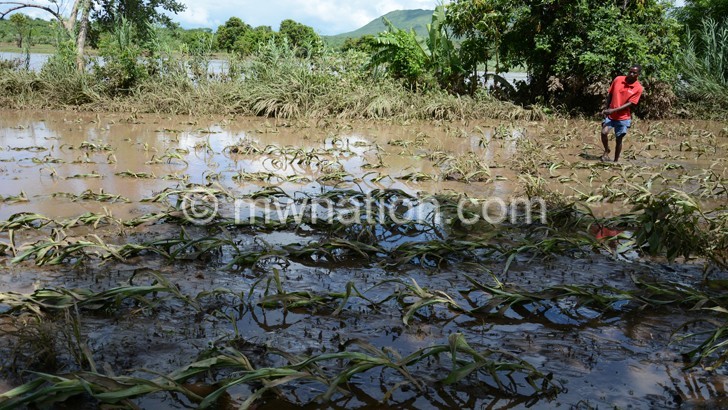Malawi feeling the pangs of climate change
Malawi continues to experience the adverse effects of climate change.
The rate of the change is so fast that it is hard to adjust naturally to the climatic conditions.
The United Nations Framework Convention on Climate Change (UNFCCC) defines climate change as “a change of climate which is attributed directly or indirectly to human activity that alters the composition of the global atmosphere and which is in addition to natural climate
variability observed over comparable time periods”.
A recent report on Global Climate Risk Index 2017 by the Germanwatch titled Who Suffers Most from Extreme Weather Events? Weather Related Loss Events in 2015 and 1996-2015 indicates that Malawi is the third most vulnerable country to climate risks.
This is because more than 84 percent of the population depends on rain-fed agriculture.
The report was issued when more than 190 countries met in Marrakech, Morocco, for the United Nations Climate Change Conference where its president Salahedinne Mezour announced that the host country, alongside other partners, will launch the National Determined Contributions (NDC) Partnership to build capacity and direct climate finance flows towards the most vulnerable.
Malawi was represented by a delegation of 15 people led by the Environmental Affairs Department of the Ministry of Natural Resources, Energy and Mining.

The pangs of climate change can no longer be dismissed when in 2016 has seen 6.8 million Malawians were rendered food insecure after some areas in the country experienced prolonged dry spells and floods during the 2015/16 growing season, according to Malawi Vulnerability Assessment Committee (Mvac).
This forced President Peter Mutharika to declare Malawi a State of national disaster in April, appealing to local and international well-wishers to assist the country mitigate the impact of the crisis.
In the year, government also came out strong in the fight against climate change by launching the first-ever National Climate Change Management Policy and the National Biodiversity Strategy and Action Plan II that seek to guide the country in the fight against adverse effects of climate change.
The two intend to guide the implementation of priority areas for climate change management and conservation of biological diversity.
The strategy, among other things, strives to attain improved capacity and knowledge on biodiversity management, increased mainstreaming of biodiversity in sectoral and local development policies and plans.
On the other hand, the policy, among other objectives, seeks to ensure that the nation is able to adjust to changes as a result of climate change and to develop adaptation responses that will address short, medium and long-term development goals.
It also aims at promoting good land use practices, including climate smart agriculture and conservation agriculture.
During the launch in Lilongwe in November, Minister of Natural Resources, Energy and Mining Bright Msaka told the gathering that Malawi can no longer dismiss climate change and biodiversity loss as mere environmental issues.
Soon after the launch of the two documents, other sectors followed suit by mainstreaming climate change in their industries.
One such sector was the National Construction Industry Council (NCIC) which also launched its Construction Industry Environmental Management Strategy a week later in Mzuzu.
One of the strategy’s objectives is to enhance the country’s achievement of climate change goals and objectives through the protection of the natural environment and sound choice of environmentally friendly construction material resources.
At the launch, NCIC board chairperson Ben Chidyaonga said the council will soon ban the use of bricks in construction, opting for environmental friendly materials.
As it is, Malawi is experiencing the worst from climate change due to lack of adaptation tools and the situation continues to worsen on the ground as water bodies are drying up and the country’s capacity to produce food is dwindling. na





